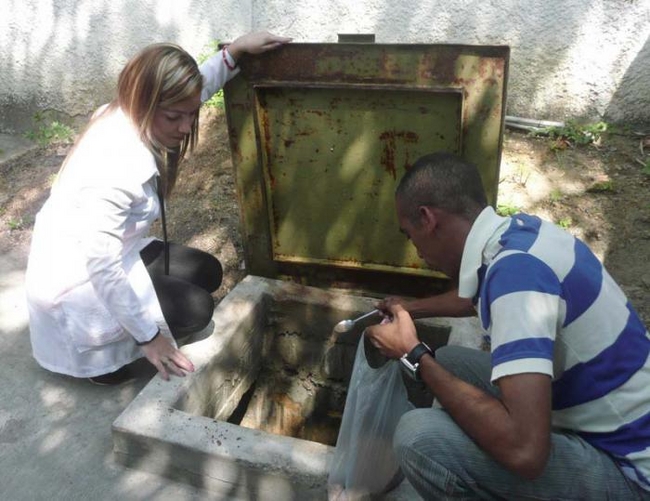Cuban health workers in Venezuela on alert to threat of Zika virus
Granma | Tuesday, 9 February 2016 | Click here for original article

CARACAS.—Alert to the threat of the Zika virus, which is spreading across Latin America, Cuban health collaborators in Venezuela are stepping up protective measures to prevent infection, while promoting actions within the population to tackle the mosquito that spreads the disease.
In their own residences, as well as the institutions where they work, a strict surveillance system had been established to observe and monitor the health of each collaborator – specifically their body temperature and any signs of the associated symptoms of the disease – while seeking to eliminate any possible conditions for the reproduction of the Aedes aegypti mosquito.
The use of mosquito nets, repellents and adequate clothing are among the instructions issued to collaborators by the Cuban medical mission leadership; while homes and workplaces are subject to frequent routine measures, such as fumigations and water tank treatment.
Dr. Mateo Cabrera, responsible for hygiene and epidemiology of the Cuban medical mission in Venezuela, speaking to the press, reassured relatives of collaborators in Cuba that across the almost 600 community health centers in the 24 states of the country where Cuban health professionals practice, the necessary resources and conditions exist to immediately attend to any collaborator displaying symptoms of the virus.
“There is also a constant flow of information from our ministry in Cuba, which keeps us updated on the international situation regarding the spread of the virus, the various warnings issued by the World Health Organisation, as well as the action plans that we are responsible for implementing at the collaborator level,” Cabrera noted.
He reported that alongside the strengthening of protective measures, Cuban health professionals have joined the national efforts to contain the spread of Zika among the Venezuelan population, through awareness programs regarding the disease, active investigations and direct assistance to the sick who arrive at their facilities.
These measures are implemented both at the primary care level on a daily basis in clinics, as well as during comprehensive community work in local neighborhoods, in which large numbers of doctors and nurses visit homes and inform families of how to prevent the spread of the disease.






